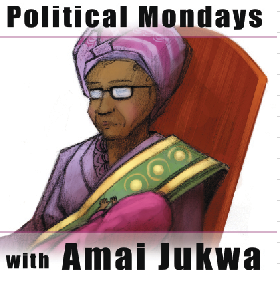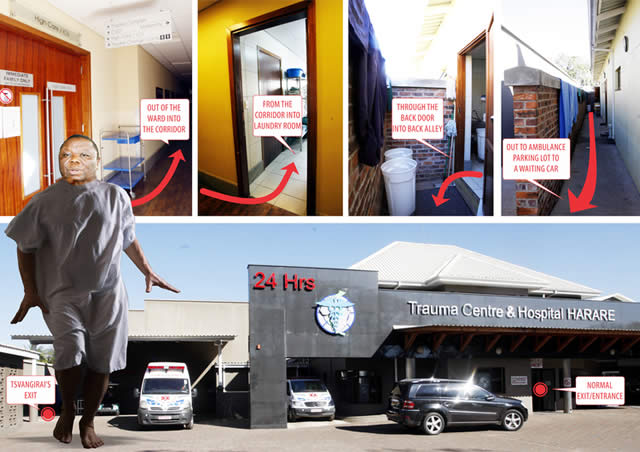Electricity betrays MDC ideological void
of seeking to ease the lives of ordinary people must still bleed into all government policy.
Government must never adopt predatory corporate tactics.
As far as is reasonably possible, government must extend generosity, especially when the extension of such does not prejudice the state in any way.
The pursuit of socialist ideals is not limited to the direct provision of costly social services. We can also put together imaginative government systems that protect the poor while, at the same time, meeting the efficiency and financial needs often met by capitalist systems of commerce. These objectives are not mutually exclusive.
It is against this background that an urgent review of Elton Mangoma’s unimaginative copy-and-paste what-are-you-doing-in-South-Africa policy prescriptions is needed. The cardinal point against which his policies must be examined is whether or not he has done all that is reasonably possible to protect the poor and give allowances for the peculiar circumstances of the millions of informal traders in this country. He has not.
What is the problem?
Before attempting a radical, expensive and indiscriminate hardware solution to the soft financial problems faced by Zesa, it was essential for Mangoma to grasp the particular nature of the challenges bedevilling that state enterprise.
He rightly identified the problems in revenue collection. Put simply, people were just not paying their bills. However, it would be helpful to understand the context in which the non-payment was occurring. Without an appreciation of why people are not paying there is a possibility of overreach, the case of opening a nut with a sledgehammer.
The poor, the cheated, the untouchables
1. We have the case of the poor whose finances are so strained that a greater chunk of their income is spent on food and only the most immediate and unavoidable expenses such as rent. Zesa bills are pushed to the bottom of the list.
2. Last year the Residents Associations and the Confederation of Zimbabwe Industries mounted a legal challenge against Zesa’s tariff changes brought about in September 2011. Many people complained about receiving inconsistent and exorbitant bills.
Some residential properties were receiving bills in the tens of thousands, making Zimbabwean electricity the most expensive in the world. They refused to pay. Others had no power for extended periods but received bills that did not reflect this. They also refused to pay and rightly so.
This was either a sinister revenue-generating plot or a case of incompetence at Zesa. In the spirit of generosity, we will assume incompetence.
3. The third group is that of the untouchables. These are powerful politicians who have the resources to pay but choose not to simply because they can. It is a case of impunity.
Overzealous solutions are expensive
Let’s start off with the most easily tackled of the non-paying offenders by looking at the second group, those who received inconsistent and exorbitant bills.
The problem in this case is not that a Mount Pleasant resident does not want to pay their electricity bill. The bill is simply incorrect.
It seems to me quite a lack of imagination to conclude that installing an expensive prepaid meter is the answer to this problem. Addressing the software challenges at Zesa would immediately put an end to the problem and at significantly lower cost.
I recognise that policy makers have wider considerations in mind when they make decisions and that these considerations sometimes demand wide-ranging changes that may not be immediately necessary but can, or will be, beneficial in future. I recognise that.
From a revenue perspective, it makes perfect sense to simply roll out prepaid meters. It lifts the burden of responsibility from Zesa and places it squarely on the shoulders of the consumer. If you do not top up the power simply goes off. It makes a lot of sense at a simplistic level; we will come to the complexities later on.
Do you know who I am?
The third group is unfortunate, those who are very well able to pay but do not. The sums owed by politicians are hardly significant in the greater scheme of things, I doubt Zanu-PF bigwigs owe Zesa anything close to US$10million. But that is hardly the point.
A politician who refuses to pay his bills and boasts without shame that he can get away with it condemns himself.
Surely we are better than that. Surely there is still some virtue and personal dignity left in us. To refuse to pay monies owed after having been publicly exposed betrays a political culture that has a contumelious disregard for public opinion. Such a culture will meet an unavoidable end at the ballot box.
The sad part is that this handful of godless men and women do these shameful things in the name of Zanu-PF. In the process, considerable damage has been done to the party brand.
This might seem unimportant when faced with an inadequate opposition like the MDC but the future might bring with it more competent adversaries.
A time of closely fought political hand-to-hand combat is coming and having a reputation for shielding utility-bill-dodging rogues will be an exploitable weakness.
Zanu-PF must cultivate a culture in which such indiscretions can cost you prestige and office. There is little Zesa can do to these untouchables but that hardly makes it right.
I am eager to see if these untouchables allow the installation of prepaid meters at their properties. If they do, one can be forgiven for imagining a crudely bridged circuit and a suspicious account that somehow manages on US$30 monthly. Munogovaita sei? It’s quite an uncivilised way to carry on, it’s a pity the offenders seem not at all troubled by their jungle ways.
None-paying by reason of poverty
There a few important fundamentals we must grasp. The first is that even the poor have a qualified right to electricity. The word poor is unhelpful. It brings some clarity when we consider them as temporarily insolvent; after all, nobody is entirely and permanently without access to money.
It is equally important that we recognise a peculiarity that followed the economic turmoil of the past decade. Zimbabwe is now a largely informal economy. Only the minority enjoy formal employment in which they receive a predictable weekly wage or are salaried on a monthly basis.
The vast majority relies on irregular trading and remittances by relatives in the Diaspora.
Once you take cognisance of these facts it immediately becomes unconscionable to impose a blanket policy of installing prepaid meters across the country. A blanket prepaid meter policy speaks the language of unadulterated commerce. It considers money as the only variable. This is unimaginative and morally bankrupt.
One cannot argue that a single mother with $5 must be placed in a binary position of either feeding her child or having electricity. This is an outrageous proposition especially when we recognise that our informal economy places a great number of people in this unfortunate but temporary position.
Electricity is not satellite television. It is an essential and government policy must be such as extends the greatest leeway to accommodate those who temporarily find themselves without money.
Prepaid meters remove any measure of situational discretion.
Coming from a socialist ideological position, I struggle to understand why any policy maker would enthusiastically pursue such an approach.
It is even more troubling when such a policy comes at a considerable cost as is the case with the Zesa meters which are expected to cost over half a billion rands. There is a more excellent approach.
Fear is the foundation of effective prevention
There is a reason why we do not park our cars wherever we wish. It is not because we are particularly noble and with regard for propriety. Rather, it is simply because we are afraid.
Those yellow clamps and the over-zealous enforcers scare us into order.
If a credible threat of discomfort is hooked onto policy humans tend to avoid the path the leads to sanctions. This is basic human nature.
We began by observing that many of the revenue problems Zesa faced were because of a faulty billing system. Simply fixing their software problems would have gone a long way.
Pre-paid meters would have served a secondary role. With billing now corrected, most families would face modest bills of about US$40 a month. This is where the fear of sanctions comes into play. Three consecutive bills that remained unpaid would lead to the installation of a pre-paid meter. The outstanding balance as well as the cost of the meter would be placed on the meter and gradually deducted.
This alone would bring about considerable behavioural changes.
Most people would prefer to enjoy the option allowing them to continue using electricity even when they do not have money. Protecting this right would become a motivation.
This would make people much more careful as to how they use electricity. With a fair billing system they would understand that the more they use the greater their bill.
Such a policy would be beneficial because it protects both Zesa and the citizen. Zesa would be assured of revenue, those who breached the three-month leeway would simply have pre-paid meters installed.
The user would also not find herself faced with the difficult situation of being plunged into darkness as soon as she ran out of money. Zesa would also save the over half a billion rands it is now planning to spend on this misguided project. I understand they have already run out of money.
What the MDC-T minister must understand is that Zesa is not a profit-making organisation. The ideology of a company that wants to maximise profits is very different to that of a government agency seeking ways to cushion its population. Governments often adopt less efficient methods of operation in an effort to achieve this end.
The real problem is that MDC-T is made up of policy lightweights who can see but sadly do not see clearly.
Amai Jukwa is a loving mother of three. She respects Robert Mugabe, is amused by Tsvangirai and feels sorry for Mutambara.









Comments